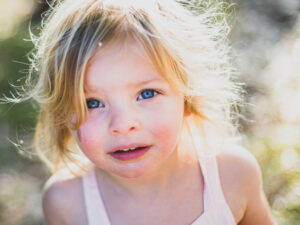3 day course

Information:
COURSE - 24 academic hours
Protecting the vulnerable!
Child victims of domestic violence - protection of their best interests
3 day course with violence specialists
Family violence affects all members of the family, adults and children alike. Still, children who have witnessed violence are not unambiguously seen as victims, although they undoubtedly are, is stated in the Estonian Government′s Violence Prevention Plan 2021-2025.
Family violence is not sufficiently condemned by society as its effects are not fully understood. Children who have experienced and witnessed violence are not adequately protected and supported. Social and child protection workers need more training to work with families affected by family violence.
This course is aimed at practitioners who wish to develop knowledge, skills and confidence in dealing with children and young people and their families when there is suspicion or knowledge of:
- family violence
- addiction problems, personality disorder or other mental disorder
- child sexual abuse
- child abandonment
- parental alienation.
The course consists of three days of training, including theory, practice, case studies, group work and supervision. Training will address the impact of violence on child well-being, gives guidelines and assessment tools.
The trainers are practitioners who work with serious domestic violence cases on a daily basis on different levels: psychotherapists dealing with prevention and consequences, on legal level and on social support level. Trainers have been recognized by the Estonian President and Legal Minister with the Award for the Prevention of Violence.
Participants will gain knowledge of the ways in which unhealthy family dynamics harm the well-being of children. They will learn to recognize patterns of violence, to see through manipulations, to spot indications of sexual abuse and to recognize early signs of child alienation from the other parent.
The trainee will be able to respond in the best interests of the child and choose appropriate interventions to support the child, minimize the risk and prevent re-victimization.
The trainee will know the signs of trauma, complex trauma and complex/PTSD in order to choose a trauma-informed approach. They will also have acquired knowledge of secondary trauma, vicarious-trauma, compassion fatigue and burnout, which threaten professionals when dealing with complex cases.
The PROGRAM
I day - Family violence and its impact on the child (16.01.2025)
- Types and forms of violence (physical, psychological, economical, sexual).
- Distinguishing between situational and systemic violence.
- Short and long-term effects of direct experience and/or witnessing of violence on the child's psyche/behavior/health.
- Parent with alcohol and/or drug abuse, personality disorder, psychosis and its impact on child well-being.
- Trauma, complex trauma, complex/PTSD.
Learning outcomes:
- Distinguish between types and manifestations of violence, recognizing the patterns.
- Recognizing the impact of a violent parent on the child's development and well-being.
- Understanding the motives of a violent person.
- Acknowledging the impact of one's own internal attitudes, beliefs and moral.
II day - Parental alienation - psychological violence against a child (6.02.2025)
- Parental alienation - historical shadow and a modern approach.
- The complex process of identifying alienation - characteristics and exclusions.
- Behavior of the alienating parent and identification of manipulations.
- Recognizing the impact of alienation on child behavior and attitudes.
- Dialogue with the child and interpreting responses.
- Levels of severity of alienation and how to help the child.
- Short- and long-term effects of alienation on the child.
- Post-divorce manipulations, legal violence after family separation.
Learning outcomes:
Early identification of the dynamics of parental alienation helps to stop negative developments and reduce psychological and emotional harm to the child.
- Recognizing the signs of parental alienation.
- Recognizing the effects of alienation on the child's behavior.
- Identifying the motives and manipulations of the abuser.
- Awareness of misconceptions and societal attitudes towards alienation.
- Finding ways how to protect the child.
III day - Child sexual abuse (27.02.2025)
- Recognizing the signs of child sexual abuse.
- Short and long term effects on the child of the "soul murder".
- Supporting and responding to the child with sexual abuse trauma.
- Ethics of the professional in the context of domestic violence.
- Is a violent parent a "good enough parent"?
- Threats to helpers: vicarious trauma, secondary traumatic stress, compassion fatigue, burnout.
- Well-equipped helpers - what resources we need to stay well.
Learning outcomes:
- Learning to recognize the signs what can indicate to sexual abuse.
- Holistic support for sexually abused children and young people - what to do and what not to do.
- Myths and realities about sexual abuse and its impact.
- The importance of and opportunities for professional self-care.
Methods to be used:
- lectures, theory
- case studies, group work, experiments
- supervision for your cases.
Lecturers:
Kaire Talviste-Baiocco - clinical gestaltpsychotherapist, forensic expert on the wellbeing of the child, MARAC supervisor, awarded 2023.
Kait Sinisalu - clinical gestaltpsychotherapist, violence expert (family violence, childhood sexual abuse), awarded 2022.
Rita Holm - sexologist, creator and leader of support groups for victims of sexual violence, awarded 2024.
N.N. - lawyer, human rights expert
N.N. - psychiatrist
Additional lecturers will be announced before the start of the course.
The organiser reserves the right to make changes to the lecturers, time and place of the training.
Come and join a course to protect the children from harm!
SIGN UP
